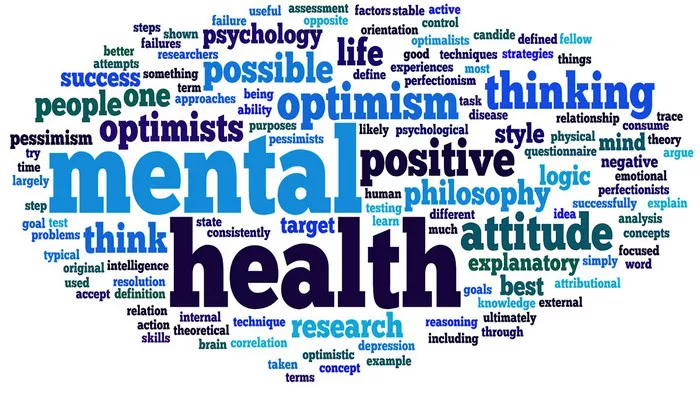In today’s fast-paced world, it’s easy to overlook our mental health amidst the hustle and bustle of daily life. However, taking the time to assess our mental well-being is crucial for maintaining overall health and happiness. While seeking professional guidance is always recommended for addressing mental health concerns, self-assessment tools such as quizzes can provide valuable insights into our emotional state and potential areas of concern. In this article, we will explore the concept of self-assessment quizzes, specifically focusing on “What is my disorder?” quizzes, their benefits, limitations, and how to use them effectively.
The Rise of Self-Assessment Quizzes
With the increasing awareness and destigmatization of mental health issues, self-assessment quizzes have become a popular tool for individuals to gain insight into their own psychological well-being. These quizzes are often designed to assess specific symptoms or behaviors associated with various mental health disorders, allowing individuals to identify potential areas of concern and seek appropriate support or treatment.
Benefits of Self-Assessment Quizzes
Increased Awareness: Self-assessment quizzes can help individuals become more aware of their own thoughts, feelings, and behaviors, as well as recognize patterns or symptoms that may indicate a mental health disorder.
Early Intervention: By identifying potential mental health concerns early on, individuals can take proactive steps to seek support or treatment, preventing the issue from worsening over time.
Empowerment: Taking a self-assessment quiz can empower individuals to take control of their mental health and advocate for their own well-being. It can serve as a first step towards seeking help and making positive changes in their lives.
Reduced Stigma: By normalizing conversations about mental health and encouraging self-assessment, quizzes can help reduce the stigma associated with mental illness, making it easier for individuals to seek support without fear of judgment or shame.
Limitations of Self-Assessment Quizzes
Not a Substitute for Professional Evaluation: It’s important to remember that self-assessment quizzes are not a substitute for professional evaluation or diagnosis by a qualified mental health professional. While they can provide valuable insights, they should not be used as the sole basis for making decisions about treatment or seeking help.
Limited Accuracy: Self-assessment quizzes may have limitations in terms of accuracy and reliability. The questions may be subjective, and individuals may interpret them differently, leading to varying results.
Potential for Misinterpretation: Individuals may misinterpret the results of a self-assessment quiz, leading to unnecessary worry or anxiety. It’s important to approach the results with caution and seek further evaluation if needed.
Lack of Personalization: Self-assessment quizzes are designed to be general in nature and may not take into account individual differences or unique circumstances. As a result, the results may not accurately reflect a person’s specific mental health needs.
Using “What is my disorder?” Quizzes Effectively
Choose Reputable Sources: When selecting a self-assessment quiz, choose reputable sources such as mental health organizations, universities, or healthcare providers. Look for quizzes that have been developed or endorsed by qualified mental health professionals.
Be Honest and Reflective: Answer the quiz questions honestly and reflectively, without overthinking or second-guessing your responses. Remember that there are no right or wrong answers – the goal is to gain insight into your own thoughts, feelings, and behaviors.
Consider the Results Carefully: Review the results of the quiz carefully, keeping in mind that they are not a definitive diagnosis. Pay attention to any patterns or themes that emerge and consider whether they align with your own experiences or concerns.
Seek Professional Guidance: If the results of the quiz raise concerns or you are experiencing significant distress, it’s important to seek professional guidance from a qualified mental health professional. They can provide a comprehensive evaluation and recommend appropriate treatment or support options.
Conclusion: Navigating Mental Health Self-Assessment
In conclusion, self-assessment quizzes can be a valuable tool for gaining insight into our own mental health and identifying potential areas of concern. However, it’s important to approach them with caution and recognize their limitations. While self-assessment quizzes can provide a starting point for self-reflection and awareness, they are not a substitute for professional evaluation or diagnosis. If you have concerns about your mental health, seek guidance from a qualified mental health professional who can provide personalized support and guidance tailored to your individual needs. Remember, taking care of your mental health is an ongoing process, and seeking help is a sign of strength, not weakness.
[inline_related_posts title=”You Might Be Interested In” title_align=”left” style=”list” number=”6″ align=”none” ids=”8609,8535,8532″ by=”categories” orderby=”rand” order=”DESC” hide_thumb=”no” thumb_right=”no” views=”no” date=”yes” grid_columns=”2″ post_type=”” tax=””]































